Frequently Asked Questions About California Insurance

Frenquently Asked Questions
California Auto Insurance Laws
- Comprehensive
- Collision
- Loan/Lease Payoff
- Medical and Funeral Services
- Rental Car Reimbursement
- Roadside Assistance
- Uninsured Motorist Bodily Injury
- Uninsured Motorist Property Damage
In California, the state minimum coverage requirement is liability insurance, with limits of:
- Bodily Injury $15,000 per person
- Bodily Injury $30,000 per accident
- Property Damage $5,000 per accident
California SR-22 Auto Insurance
If you need an SR-22 to get car insurance in California, you aren’t alone. This relatively routine legal requirement is triggered by a violation like a DWI conviction, a driving-without-insurance citation, an at-fault collision, a citation for driving with a suspended license, or accumulating too many license points.
Getting affordable insurance coverage with a SR-22 in California might require some effort, but it could pay off. We explored how much a SR-22 certificate usually costs in California and how to go about getting one — let’s dive in.
Not having a vehicle makes it more difficult to obtain an SR-22, as you will need to furnish proof of insurance to receive the certificate. If this is the case, you should buy a non-owners car insurance policy before filing for an SR-22. A non-owners policy is typically less expensive than a standard policy since it won’t provide protection for physical damage sustained by your vehicle.
Needing an SR-22 might disqualify you from purchasing insurance from some companies, while others would be happy to sell you a policy.
When filing for car insurance, you’ll be billed extra to cover the cost of the SR-22 request form and your high-risk driving profile. An SR-22 requirement may disqualify you from buying insurance from some carriers, while others would be happy to sell you a policy.
With an active insurance policy, requesting an SR-22 might be easy. Just call your insurance company request they file a SR-22 request on your behalf. If your current insurer declines to request a certificate, you should shop around for a new insurance company.
Auto insurance with an SR-22 in California will probably be expensive. This isn’t a result of the SR-22 itself — filing fees are usually $15 to $35 — but because of the insurance cost increases from the driving violation that necessitated the SR-22.
Insurance companies charge high-risk motorists more expensive rates to account for the more substantial probability of claims payouts via collisions. The rate increase you will face may depend on the number and severity of infractions — below are average car insurance prices for drivers with SR-22s in California.
California Commercial Auto Insurance
- Bodily injury liability coverage – pays for bodily injury or death resulting from an accident for which you are at fault and provides you with a legal defense.
- Property damage liability coverage – provides you with protection if your car accidently damages another persons property. It also provides you with a legal defense.
- Combined single limit (CSL) – Liability policies typically offer separate limits that apply to bodily injury claims for property damage. A combined single limits policy has the same dollar amount of coverage per covered occurrence whether bodily injury or property damage, one person or several.
- Medical payments, no-fault or Personal Injury Coverage – usually pays for the medical expenses of the driver and passengers in your car incurred as a result of a covered accident regardless of fault.
- Uninsured motorist coverage – pays for your injuries and, in some circumstances, certain property damage caused by an uninsured or a hit-and-run driver. In some cases, underinsured motorist coverage is also included. This is for cases in which the at-fault driver has insufficient insurance.
- Comprehensive physical damage coverage – pays for damage to or replacement of your car from theft, vandalism, flood, fire, and other covered perils.
- Collision coverage – pays for damage to your car when it hits or is hit by another object.
Commercial auto insurance, like your personal auto policy, provides similar coverages such as liability, collision, comprehensive, medical payments (or personal injury protection) and uninsured motorists coverage to California businesses. However, there are also differences between a commercial auto insurance policy and your personal auto policy that may include eligibility, definitions, coverages, exclusions, and limits.
Most Commercial auto policies are “named driver only” policies, meaning only those drivers listed on the policy can operate a covered auto.
In general, if an auto is used in tasks related to the operator’s occupation, profession or business, other than commuting, a commercial policy is necessary.
- If you are using your auto to transport goods or people for a fee or if you use your auto to conduct a service, you may need a commercial auto insurance policy.
- A commercial auto policy may be appropriate if you need higher limits of liability because of the nature of your work.
- Hauling a considerable weight in tools or equipment or towing a trailer used to conduct your business may require a commercial auto insurance policy.
- A commercial insurance policy may be needed if employees operate the auto or if ownership is in the name of a corporation or partnership.
California Auto Insurance Laws
- Comprehensive
- Collision
- Loan/Lease Payoff
- Medical and Funeral Services
- Rental Car Reimbursement
- Roadside Assistance
- Uninsured Motorist Bodily Injury
- Uninsured Motorist Property Damage
In California, the state minimum coverage requirement is liability insurance, with limits of:
- Bodily Injury $15,000 per person
- Bodily Injury $30,000 per accident
- Property Damage $5,000 per accident
California SR-22 Auto Insurance
If you need an SR-22 to get car insurance in California, you aren’t alone. This relatively routine legal requirement is triggered by a violation like a DWI conviction, a driving-without-insurance citation, an at-fault collision, a citation for driving with a suspended license, or accumulating too many license points.
Getting affordable insurance coverage with a SR-22 in California might require some effort, but it could pay off. We explored how much a SR-22 certificate usually costs in California and how to go about getting one — let’s dive in.
Not having a vehicle makes it more difficult to obtain an SR-22, as you will need to furnish proof of insurance to receive the certificate. If this is the case, you should buy a non-owners car insurance policy before filing for an SR-22. A non-owners policy is typically less expensive than a standard policy since it won’t provide protection for physical damage sustained by your vehicle.
Needing an SR-22 might disqualify you from purchasing insurance from some companies, while others would be happy to sell you a policy.
When filing for car insurance, you’ll be billed extra to cover the cost of the SR-22 request form and your high-risk driving profile. An SR-22 requirement may disqualify you from buying insurance from some carriers, while others would be happy to sell you a policy.
With an active insurance policy, requesting an SR-22 might be easy. Just call your insurance company request they file a SR-22 request on your behalf. If your current insurer declines to request a certificate, you should shop around for a new insurance company.
Auto insurance with an SR-22 in California will probably be expensive. This isn’t a result of the SR-22 itself — filing fees are usually $15 to $35 — but because of the insurance cost increases from the driving violation that necessitated the SR-22.
Insurance companies charge high-risk motorists more expensive rates to account for the more substantial probability of claims payouts via collisions. The rate increase you will face may depend on the number and severity of infractions — below are average car insurance prices for drivers with SR-22s in California.
California Commercial Auto Insurance
- Bodily injury liability coverage – pays for bodily injury or death resulting from an accident for which you are at fault and provides you with a legal defense.
- Property damage liability coverage – provides you with protection if your car accidently damages another persons property. It also provides you with a legal defense.
- Combined single limit (CSL) – Liability policies typically offer separate limits that apply to bodily injury claims for property damage. A combined single limits policy has the same dollar amount of coverage per covered occurrence whether bodily injury or property damage, one person or several.
- Medical payments, no-fault or Personal Injury Coverage – usually pays for the medical expenses of the driver and passengers in your car incurred as a result of a covered accident regardless of fault.
- Uninsured motorist coverage – pays for your injuries and, in some circumstances, certain property damage caused by an uninsured or a hit-and-run driver. In some cases, underinsured motorist coverage is also included. This is for cases in which the at-fault driver has insufficient insurance.
- Comprehensive physical damage coverage – pays for damage to or replacement of your car from theft, vandalism, flood, fire, and other covered perils.
- Collision coverage – pays for damage to your car when it hits or is hit by another object.
Commercial auto insurance, like your personal auto policy, provides similar coverages such as liability, collision, comprehensive, medical payments (or personal injury protection) and uninsured motorists coverage to California businesses. However, there are also differences between a commercial auto insurance policy and your personal auto policy that may include eligibility, definitions, coverages, exclusions, and limits.
Most Commercial auto policies are “named driver only” policies, meaning only those drivers listed on the policy can operate a covered auto.
In general, if an auto is used in tasks related to the operator’s occupation, profession or business, other than commuting, a commercial policy is necessary.
- If you are using your auto to transport goods or people for a fee or if you use your auto to conduct a service, you may need a commercial auto insurance policy.
- A commercial auto policy may be appropriate if you need higher limits of liability because of the nature of your work.
- Hauling a considerable weight in tools or equipment or towing a trailer used to conduct your business may require a commercial auto insurance policy.
- A commercial insurance policy may be needed if employees operate the auto or if ownership is in the name of a corporation or partnership.


